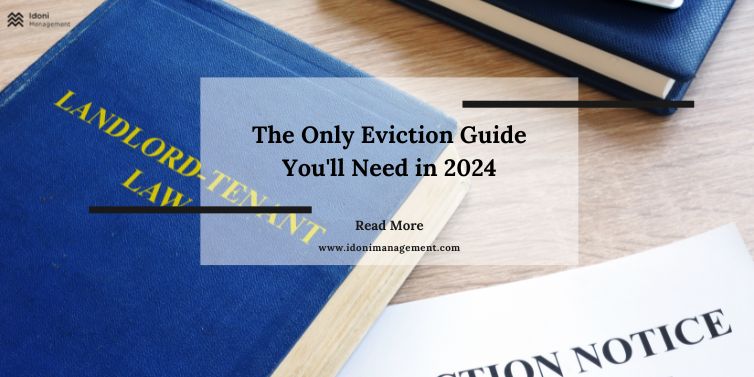Facing eviction is a challenging experience for both landlords and tenants. Understanding the eviction process and your rights and responsibilities is crucial to handling this difficult situation. You should be known of the process, laws, and steps that need to be taken in eviction. It could be used to defend your rights and save your property.
In this guide, we’ll break down the eviction process in CT step by step and provide valuable insights for landlords and tenants in Connecticut.
What is Eviction?
Eviction is the legal process through which a landlord seeks to remove a tenant from a rental property. It typically occurs when a tenant fails to comply with the terms of their lease agreement, such as not paying rent on time or violating other terms of the lease.
The eviction process usually involves serving the tenant with a notice to vacate the property, followed by filing a lawsuit in court if the tenant does not leave voluntarily.
If the court rules in favor of the landlord, the tenant may be ordered to leave the property, and law enforcement may be involved in physically removing the tenant if necessary. Eviction is a serious matter with legal implications for both landlords and tenants, and it’s essential to understand the rights and responsibilities of each party under the law.
Eviction Process for Landlords in Connecticut
As a landlord, facing the prospect of eviction can be a challenging and stressful experience. Whether it’s due to non-payment of rent, lease violations, or other issues, understanding the eviction process is crucial to protecting your investment and property rights.
In Connecticut, as of 2024, there were approximately 20,000 eviction filings annually, with about 30% resulting in actual evictions. This process involves serving notices and potentially going to court if the tenant doesn’t leave voluntarily.
Understanding the Eviction laws
Eviction laws in Connecticut are governed by both state statutes and local regulations, making it essential for landlords to understand these laws to protect their rights and follow proper procedures. Here are some key government guidelines from Connecticut laws and policies on eviction:
- Notice Requirements: Landlords must adhere to specific notice requirements when initiating eviction proceedings.
- For nonpayment of rent: landlords must provide a three-day notice to pay rent or vacate, as outlined in Connecticut General Statutes Section 47a-23.
- Lease violations: landlords must give tenants a notice to quit form or cure, typically providing 15 days to remedy the violation, as specified in Connecticut General Statutes Section 47a-15.
- For termination of a month-to-month tenancy: Landlords must give tenants 30 days’ notice if they’ve lived in the property for less than a year, and 60 days’ notice if they’ve lived there for more than a year.
- Valid Reasons for Eviction: Connecticut law specifies valid reasons for eviction, including nonpayment of rent, lease violations, failure to vacate the property after the lease term expires, or other breaches of the lease agreement. Landlords must have legitimate reasons for evicting tenants and cannot evict them without cause.
- Procedures for Resolving Disputes: Landlords and tenants are encouraged to resolve disputes through mediation or negotiation before pursuing eviction. Connecticut law provides mechanisms for alternative dispute resolution, such as mediation programs administered by local housing authorities or court-ordered mediation. These procedures aim to facilitate communication between landlords and tenants and reach mutually agreeable solutions without the need for eviction.
Preparing for Eviction
Before initiating the eviction process, it’s essential to collect the documentation to support your case. This may include lease agreements, rent payment records, communication with tenants, and any other relevant paperwork. Being prepared can help streamline the eviction process and increase your chances of a successful outcome.
Steps in the Eviction Process
Here are the steps of eviction that landlords should follow in the eviction process in Connecticut.
- Serve Notice to Quit or Pay Rent: The eviction process usually starts with serving the tenant with a notice to quit or pay rent. In Connecticut, for instance, landlords must provide a three-day notice for nonpayment of rent. According to recent data, approximately 70% of eviction cases in Connecticut begin with a notice to quit or pay rent.
- File Summary Process Action: If the tenant fails to comply with the notice, the next step is to file a summary process action, also known as an eviction lawsuit, with the appropriate court. In Connecticut, there were approximately 20,000 eviction filings in 2023, according to court records.
- Attend Court Hearing: Both the landlord and tenant will be summoned to appear in court for a hearing. The court will review the evidence presented by both parties and make a decision based on the law. In Connecticut, 60% of eviction cases result in judgments for possession in favor of the landlord, according to recent court statistics.
- Obtain Judgment for Possession: If the court rules in favor of the landlord, a judgment for possession will be issued. This grants the landlord the legal right to take possession of the property. In Connecticut, landlords typically receive judgments for possession within approximately 30 days of filing the eviction lawsuit, based on average court processing times.
- Enforce Eviction Order: If the tenant fails to vacate the property voluntarily by the deadline specified in the judgment for possession, the landlord may need to enforce the eviction order with the assistance of law enforcement. In Connecticut, law enforcement officers execute approximately 80% of eviction orders, according to data from the state judiciary.
Alternatives to Eviction
While eviction may be necessary in some cases, approximately 40% of eviction cases in Connecticut were resolved through mediation or negotiation. As a landlord, you may explore alternatives such as mediation, payment plans, or lease termination agreements to resolve disputes with tenants amicably. Exploring these alternatives can help you avoid the time, expense, and uncertainty of the eviction process.
Resources and Support
In Connecticut, there are resources available to assist landlords facing eviction, including legal aid organizations, landlord associations, and government agencies. Don’t hesitate to reach out for support and guidance if you’re navigating the eviction process.
Eviction Process for Tenants in Connecticut
Facing eviction can be a stressful and overwhelming experience for tenants. Whether it’s due to financial difficulties, lease violations, or other reasons, understanding your rights and options is crucial.
Understanding Eviction Laws

In Connecticut, eviction laws are governed by state statutes and local regulations. As a tenant, it’s important to know legal tenant rights. For example, landlords must provide proper notice before initiating eviction proceedings, and tenants have the right to defend against wrongful eviction actions. Familiarizing yourself with these laws can help you navigate the eviction process more effectively.
Government Guidelines for Tenants Facing Eviction:
- Notice Requirements: Landlords in Connecticut must adhere to specific notice requirements when initiating eviction proceedings.
- Nonpayment of rent: landlords must provide tenants with a three-day notice for nonpayment of rent, as outlined in Connecticut General Statutes Section 47a-23.
- Lease violations: tenants must be given a notice to cure or quit, typically allowing 15 days to remedy the violation, by Connecticut General Statutes Section 47a-15.
- Right to Defend: Tenants have the right to defend against wrongful eviction actions in court. In Connecticut, tenants have the opportunity to present their cases and provide evidence supporting their position during eviction hearings. According to recent court statistics, approximately 40% of tenants who defend against eviction actions in Connecticut courts are successful in retaining their tenancy.
- Legal Aid and Resources: Tenants facing eviction in Connecticut have access to legal aid organizations and government resources that can provide assistance and guidance. For example, the Connecticut Fair Housing Center provides free legal assistance to tenants facing eviction, and the Connecticut Department of Housing offers resources and information on tenant rights. Additionally, Over 60% of tenants who seek assistance from these resources can negotiate favorable outcomes and avoid eviction.
Preparing for Eviction
Facing eviction can be a stressful experience, but being prepared can help alleviate some of the stress. Here are some steps to take if you find yourself facing eviction:
- Review Your Lease Agreement: Take the time to thoroughly review your lease agreement. Understanding your rights and obligations as outlined in the lease can provide valuable guidance during the eviction process.
- Gather Relevant Documentation: Collect any relevant documentation related to your tenancy, such as rent receipts, lease agreements, and communication with your landlord. Having this documentation on hand can support your case and help you advocate for yourself during eviction proceedings. Also, it improves the 60% higher chance of success in eviction hearings.
- Seek Legal Advice: Consider seeking legal advice from a qualified attorney who specializes in landlord-tenant law. A professional housing lawyer in Connecticut can provide personalized guidance based on your specific situation and help you understand your rights and options. In Connecticut, tenants have access to legal aid organizations that offer free or low-cost legal assistance, such as the Connecticut Fair Housing Center.
Steps in the Eviction Process
The eviction process typically begins with the landlord serving you with a notice to vacate the property. If you don’t leave voluntarily, the landlord may file a lawsuit in court. It’s important to respond to any notices and attend any court hearings related to your eviction. Presenting your case effectively can increase your chances of a favorable outcome.
Alternatives to Eviction
Eviction should be considered a last resort for landlords and tenants alike. There are often alternative solutions that can help resolve disputes and avoid eviction. If you’re struggling to pay rent, consider reaching out to your landlord to discuss payment plans or other arrangements. You may also be eligible for financial assistance programs or legal aid services.
Resources and Support
In Connecticut, there are resources available to assist tenants facing eviction. Legal aid organizations, tenant advocacy groups, and government assistance programs can provide valuable support and guidance. Don’t hesitate to reach out for help if you’re struggling with eviction.
FAQ –
How does eviction work in CT?
Eviction in Connecticut is a legal process where landlords remove tenants from a rental property for various reasons, such as nonpayment of rent or lease violations. It involves serving the tenant with a written notice to vacate, filing an eviction lawsuit in court, attending a court hearing, and obtaining a judgment of possession if the court rules in favor of the landlord.
How much time does a landlord have to give a tenant to move out in CT?
The time landlords must give tenants to move out in Connecticut varies depending on the reason for eviction:
- For nonpayment of rent: Landlords must give tenants a three-day notice to pay rent or vacate.
- For other lease violations: Landlords must give tenants a notice to cure or quit, typically providing 15 days to remedy the violation.
- For termination of a month-to-month tenancy: Landlords must give tenants 30 days’ notice if they’ve lived in the property for less than a year, and 60 days’ notice if they’ve lived there for more than a year.
What is a good cause of eviction in CT?
Good and common causes for eviction in Connecticut include nonpayment of rent, lease violations, failure to vacate the property after the lease term expires, or other breaches of the lease agreement.
What is the legal case of eviction?
In Connecticut, the legal case of eviction is known as a summary process action. It involves landlords filing a lawsuit in court, attending a court hearing, and obtaining a judgment of possession if the court rules in their favor. If the tenant fails to vacate the property voluntarily, law enforcement officers may execute a writ of possession to remove the tenant.
Don’t hesitate to reach out for expert advice or to discuss your property management needs. Feel free to call us anytime at (877) 283-6625, or reach out to schedule a 20-minute consultation with our team.
Let Idoni Management help you navigate the intricacies of property management and eviction processes seamlessly.





